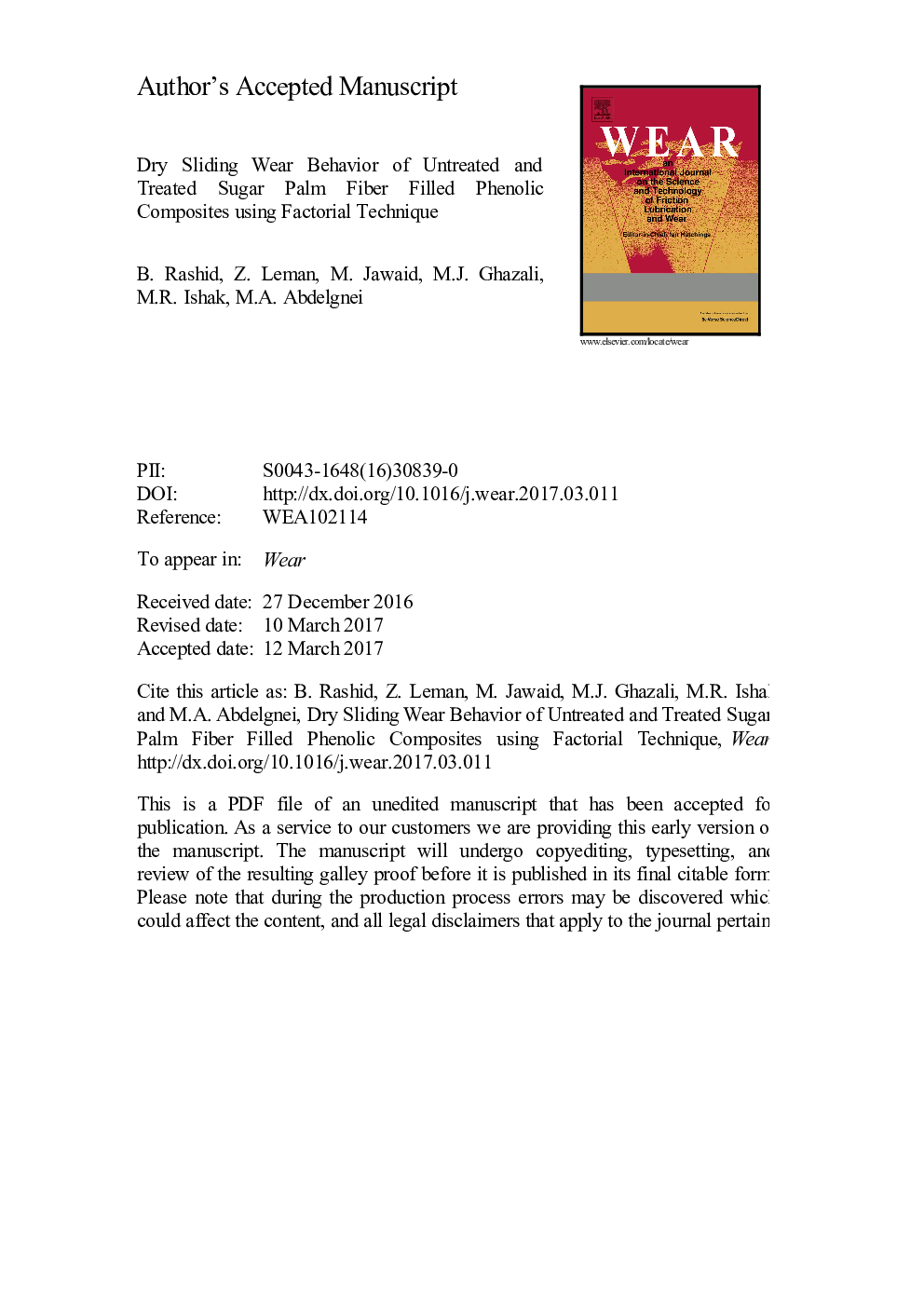| Article ID | Journal | Published Year | Pages | File Type |
|---|---|---|---|---|
| 4986487 | Wear | 2017 | 35 Pages |
Abstract
The purpose of the current work was to investigate, for the first time, the potential improvements in the wear resistance of phenolic matrix composites from using sugar palm fiber (SPF) as a reinforcement. Consequently, open a new approach for utilizing the available locally cheap and non-toxic fibres to produce a prospective candidate tribo-materials for friction application, such as brake pad composites. The fibers were treated with seawater for 30 days and with a 0.5% alkaline solution to improve the fiber-matrix adhesion. Thereafter, the fibers were used in particle form with a volume loading of 30% to fabricate the samples using a hot press machine. The tribology-properties of the developed composites were tested using a computerized pin on disc machine. The test set-up was conducted for various combinations of different parameters, such as the type of treatment, applied normal load (30, 50, and 70Â N), and sliding speed (2.6, 3.9, and 5.2Â m/s) at a constant sliding distance of 5000Â m under dry sliding conditions. Factorial technique, along with ANOVA analysis, were used to identify the significant and important design factors. The results depict that the volume loss of the seawater and alkali treated composites decreased by about 20.2% and 37.9%, respectively, whereas the coefficient of friction reduced by 10% and 13%, respectively, compared to the untreated composite. Moreover, ANOVA analysis revealed that the applied normal load and treatment made the most significant contribution to the volume, while the sliding speed had no significant effect on the wear results. Worn surface morphology investigation was carried out to support the results.
Related Topics
Physical Sciences and Engineering
Chemical Engineering
Colloid and Surface Chemistry
Authors
B. Rashid, Z. Leman, M. Jawaid, M.J. Ghazali, M.R. Ishak, M.A. Abdelgnei,
